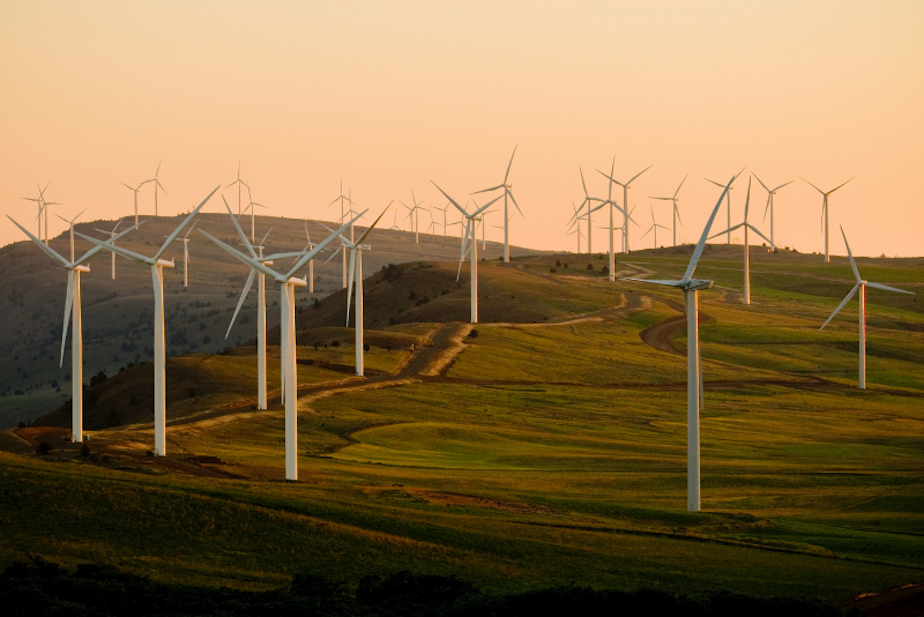WA will need more clean energy from other states by 2050

Washington state aspires to be a leader in clean energy, but its wind, solar and other renewable energy sources can only produce so much.
Meanwhile, the state Department of Commerce recently told lawmakers our power needs will nearly double by 2050. So, the state may have to rely on energy from our neighbors.
"Essentially, we're weaning ourselves away from fossil fuels. Our state is growing at the same time," says John Stang, who reported on the impending shift for Crosscut. "Electricity is replacing fossil fuels, and therefore, we're going to need a heck of a lot more electricity."
Speaking to KUOW's Morning Edition, Stang says much of the additional energy we'll need will likely come from Montana and Wyoming, where the wind and solar energy industries are thriving.
In fact, the state Department of Commerce expects about 36% of Washington's clean energy will come from those states by 2050. That would represent a significant shift for the state, which currently exports energy to other states.
So, why can't Washington just increase its own clean energy output to keep up with demand?
"A major problem with that is, essentially, every way that you can produce electricity has a hurdle or something wrong with it," Stang says. "Hydroelectric dams hurt migrating fish. Solar can mess up a critical habitat. Wind turbines can mess up some critical habitat and could kill threatened species of birds."
Sponsored
Other proposals across the state have clashed with Indigenous cultural concerns. And then, of course, "you have fossil fuels, which put carbon in the air."
But getting energy from out of state is easier said than done.
Stang explains the state will need to invest in significant infrastructure, particularly transmission lines, that will take years, if not decades to build.
Lawmakers in Olympia are currently considering a bill to start the planning process.
That's just the beginning.
Sponsored
"Beyond that, we're going in uncharted territory," Stang says. "They just have some broad goals at this point, and they're going have to spend the next 27 years tackling this issue. It's going to be a super gradual, painful process, probably for the first several years."





